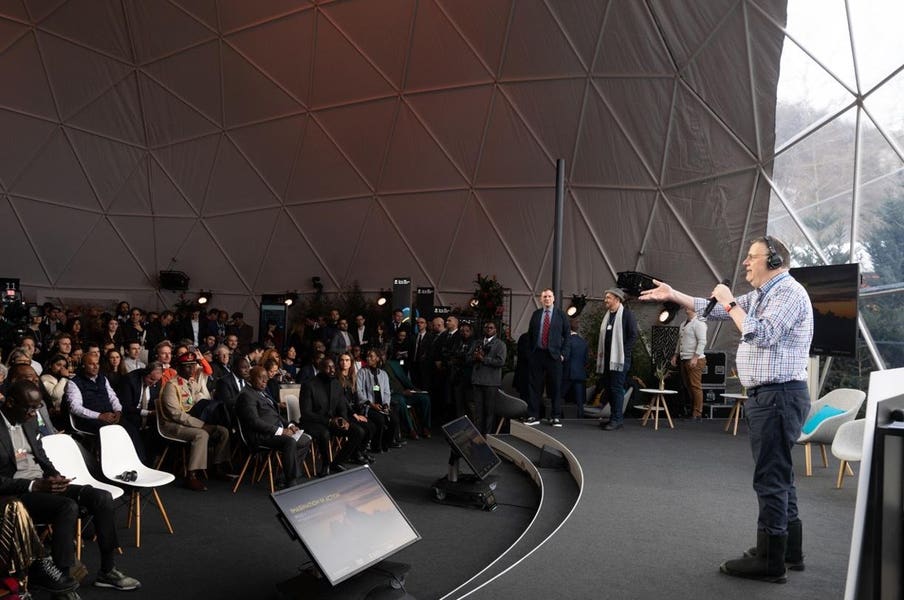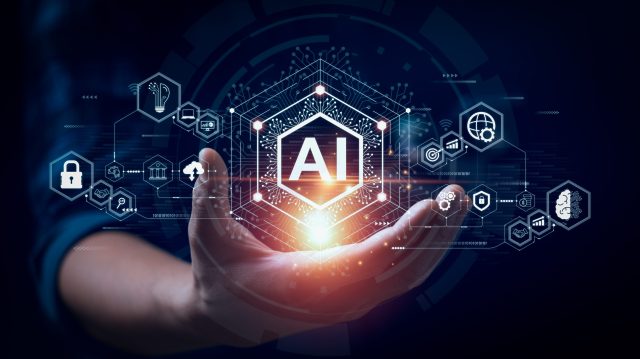We experienced a convergence of notable speakers and influential figures at Davos within the expansive 500-meter square (56,000 sqf) TCS Dome venue on January 17, 2024, under the theme “Imagination in Action – Bold Actions and Global Progress.” Among the myriad discussions, one that stood out was the succinct yet impactful presentation by Jeremy Wertheimer during a breakout session.
After the culmination of our 15th panel, featuring the esteemed Sir Tim Bernes-Lee, anticipation mounted for the upcoming discourse with Yann LeCun, the distinguished recipient of the 2019 Turing Prize, slated for our 17th panel. With ten more engaging panels on the agenda, the 16th session held particular intrigue as it showcased addresses from the Presidents of Ghana (Nana Akufo-Addo) and Rwanda (Paul Kagame), alongside Kweku Mandela, the grandson of Nelson Mandela. A brief interlude ensued as we awaited the arrival of the two presidents and their entourages. Seizing the moment, I entrusted Jeremy with the microphone, tasking him with delivering a concise 5-minute talk on the fundamental principles that should underpin our visions of AI for the future.
Jeremy Wertheimer boasts a rich background in AI exploration spanning decades. His journey commenced at the MIT AI lab in the 1980s, under the mentorship of luminaries like Marvin Minsky, culminating in the attainment of his PhD in ‘96, and the establishment of ITA Software. Presently, he remains actively engaged in the startup landscape, maintaining a keen awareness of the unfolding AI landscape.
In his impromptu address, Jeremy underscored the imperative of assuming responsibility for catering to the needs of the upcoming generation through AI advancements. Emphasizing the current proficiency in AI development, he pivoted the focus towards the challenge faced by governments and institutions in leveraging existing capabilities. Drawing on the notion that change transpires gradually before accelerating abruptly, he illustrated the transformative potential of AI in providing every child with a top-tier tutor and post-school job guidance.
While lauding the efficacy of existing economic systems, Jeremy posed a poignant query: amidst economic optimization, who advocates for the welfare of children? Reflecting on the release of GPT4 on March 14, colloquially known as “Pi Day” within MIT circles, he highlighted this event as a catalyst for progress. Urging prompt integration of AI into educational curricula, he underscored the sluggish pace of institutional adaptation juxtaposed with the rapid technological evolution.
Advocating for the immediate embrace of change, Jeremy championed the inclusion of critical skills such as critical thinking and civic engagement in educational frameworks. Central to his discourse was the empowerment of younger generations, advocating for a shift towards innovation tailored to the needs of future cohorts rather than perpetuating antiquated practices in a novel guise.
His impassioned address resonated with the audience, offering a glimpse into the future trajectory of discussions at Davos. The insights shared by this luminary in the realm of IT serve as a compelling catalyst for contemplation and action.






